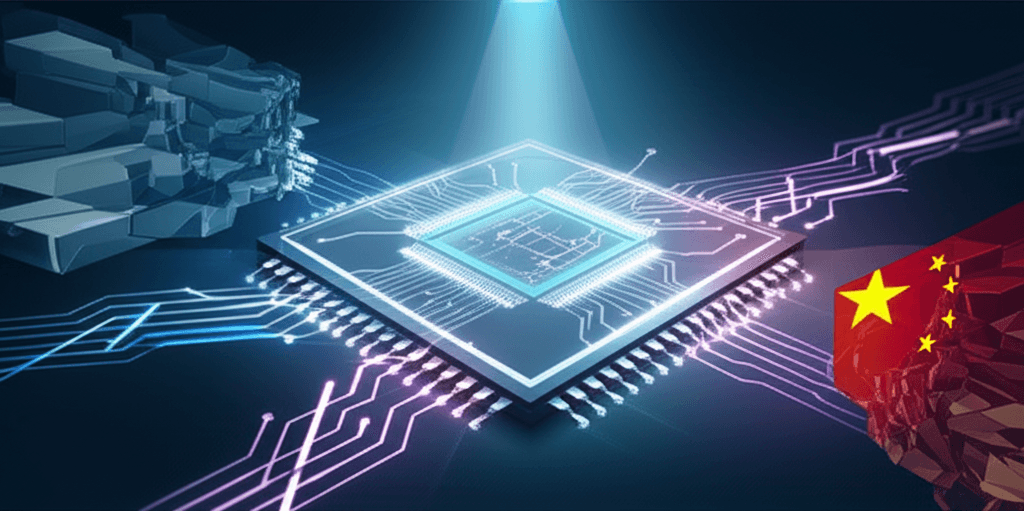China Probes Nvidia H20 AI Chips Over Potential 'Backdoor' Security Risks
Beijing raises "backdoor" security fears over Nvidia's H20 chips, escalating the high-stakes US-China tech war.
July 31, 2025

China has officially raised national security concerns over Nvidia's H20 artificial intelligence chips, casting a new layer of uncertainty on the already complex relationship between the U.S. technology giant and the lucrative Chinese market.[1][2][3] The Cyberspace Administration of China (CAC), the country's powerful internet regulator, summoned Nvidia for a meeting to address potential "backdoor" security risks associated with the H20 chips.[4][5][6][7] This move signals a significant development in the ongoing U.S.-China tech rivalry, where high-performance semiconductors are at the epicenter of a struggle for technological and military supremacy.
The core of China's apprehension stems from the possibility that Nvidia's H20 chips could contain tracking and remote control functionalities.[4][8][9] The CAC's inquiry is based on recent reports and demands from U.S. lawmakers to incorporate location-tracking technology into advanced chips destined for export.[4][5] A bipartisan bill introduced by U.S. lawmakers in May would mandate that AI processor manufacturers, including Nvidia, integrate technology to verify the location of their chips before they are shipped abroad.[4][5] This proposal is a direct response to reports of U.S. export-controlled AI chips being smuggled into China.[4] The Chinese regulator has also pointed to statements from American AI experts who have suggested that remote control technologies related to Nvidia's chips have matured.[4][8][7] Nvidia, for its part, has not publicly confirmed that its H20 chips possess such tracking features.[4] The CAC has requested that Nvidia provide explanations and relevant documentation to address these concerns, citing China's Cybersecurity Law, Data Security Law, and Personal Information Protection Law as the legal basis for its inquiry.[8]
The H20 chip itself is a product of the escalating U.S.-China tech tensions.[2] Developed specifically for the Chinese market, the H20 is a modified version of Nvidia's more powerful AI processors, designed to comply with U.S. export controls aimed at limiting China's access to advanced semiconductor technology.[10][11][12] These controls, implemented in October 2022, are intended to stymie China's progress in high-tech capabilities that could have military applications.[10] The H20, built on the Hopper architecture, offers reduced performance compared to Nvidia's top-tier chips like the H100, particularly in terms of interconnect speed and overall computing power.[13][12][14] Despite these limitations, the demand for Nvidia's hardware in China remains strong, with Chinese tech companies, research institutes, and even the military seeking its products.[1][3] Nvidia recently placed a substantial order with TSMC for 300,000 H20 chipsets to meet this demand.[1][9][3]
The timing of China's security probe is particularly noteworthy. It comes shortly after the U.S. government reversed a ban on the sale of H20 chips to China, a move that itself has drawn criticism from some U.S. lawmakers and national security experts who argue it undermines American security interests.[2][15][16] The reversal of the ban was seen by some as a negotiating tactic in broader U.S.-China trade talks.[15][16] Now, with China raising its own security flags, the situation has become a multifaceted issue involving national security, economic competition, and diplomatic maneuvering. Some analysts believe Beijing's inquiry may be largely symbolic, a strategic response to similar security concerns raised by Western nations about Chinese technology.[1] Others suggest it could be part of a broader strategy to bolster China's domestic chip industry by creating hurdles for foreign suppliers.[17] China has previously launched investigations into other U.S. chipmakers, such as Micron Technology and Intel, sometimes leading to market restrictions.[1][2]
The implications of this development are significant for the global AI industry. Nvidia has been a dominant force in the AI chip market, and China is a critical revenue source.[17] The current standoff highlights the volatile and unpredictable nature of the market for U.S. tech companies operating in China.[1] While analysts do not expect an outright ban on Nvidia's products in the immediate future, given China's continued reliance on its technology, the increased scrutiny and potential for future restrictions create a challenging business environment.[1][17] The situation underscores the deep-seated mistrust between the two global powers and the ongoing "chip war" that shows no signs of abating. The push and pull between U.S. export controls and Chinese security concerns will likely continue to shape the landscape of the global semiconductor industry, forcing companies like Nvidia to navigate a treacherous path between two of the world's largest economies.
Sources
[4]
[5]
[6]
[7]
[8]
[10]
[11]
[12]
[13]
[14]
[15]
[16]
[17]